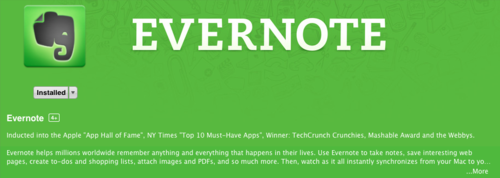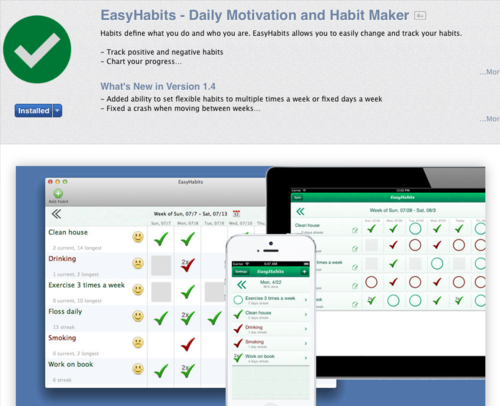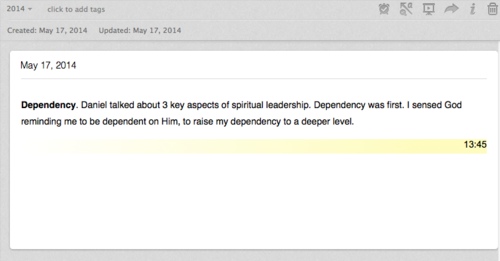Tracking My Journey by Journaling
When my cohort was tasked to read the book The First 20 Hours by Josh Kaufman, I figured we would read the book and then blog about it; this has been the customary approach to the reading assignments. However, Dr. Clark pulled a “switcheroo” and the assignment was changed to actually follow the book’s directions, learn a new skill, and then blog about the early experience of practicing the skill. This change took place in the context of a ministry trip during which I am attending my mission’s leadership conference and for which I have responsibilities. That means long days, away from home, out of my “normal” setting. What in the world could be a skill I could actually learn and implement at this time in this place?
Over the thirty plus years of journeying with Christ, I have seriously attempted to keep a journal at least a dozen times. A good number of my friends journal and they all relate how positive that discipline is; how it has provided a way to track one’s journey. I have been thinking about another attempt but after so many failures I am gun shy. A number of my colleagues at the conference I am attending keep a journal and the timing of this assignment has pressed me to try once again to keep a journal. I skimmed through the book, digested the key principles, and began to construct a strategy. I am implementing that strategy now and this post relates my experience to begin again to keep a journal.
The first decision I needed to make was to answer the question “why?” There are a number of good reasons to journal and I needed the one reason that reflected both my head and my heart’s need. My “why” is to do journaling as a way to reflect on my journey with Christ. The words of Daniel Forrester stuck with me, “The power of reflection lies not in how much time we allocate to it. The power of reflection lies in how we choose to use that time and what structure we bring to the fleeting disjointed moments we are afforded.” I want to invest a few minutes on a daily basis to reflect upon my journey, and make some brief notes about that reflection in a journal. I will then schedule a more substantial time of reflection once every two months and during that time I will review my journal entries.
The book encourages one to choose a skill that one loves, or at least is highly desirable. It is easy for me to choose journaling when I am reminded that I will interact with One that loves me that I love. My life is quite full at the moment so there is no danger that I will focus on developing more than one skill at a time! Kaufman encourages one to identify the skill level that one expects to attain. To qualify a skill level for journaling I have come up with the following rubric. My journaling must be entered in five minutes or less. It must relate nor more than one or two concrete thoughts, events, or God sightings. Each day’s entry must begin with one word which is descriptive of the entry and it will be entered in bold type. The one word description in bold type is for the purpose of reviewing trends when looking back at the entries. Each entry will not exceed one paragraph consisting of no more than five sentences.
In order to comply with my rubric, I came up with the following approach. I will aspire to give between five and ten minutes to quiet contemplation before writing my entry. I will ask myself the following two questions. “Did I see or hear God and, if so, how?” “Did I sense alignment with God’s will or malignant with God’s will in my life today?” I will try to summarize the answers to one or both of these questions into one word for each and then write the journal entry. The entry can be longer if needed but brevity is the goal. Adding media is good when easy and substantively valuable, but not required.

Because of past failures to make journaling a habitual skill, I know that it must be easy to accomplish and immediately meaningful. The tools used must comply with these values. I chose to use an electronic method since I am rarely without my smart phone. I surveyed the many apps available for journaling. I chose an app that was compatible with my laptop, tablet, and phone so that the devices would sync seamlessly. I wanted an entry made on any device to automatically sync with the other devices with my intervention. I also wanted a tool that had few “bells and whistles;” it had to be simple! I also looked for an app that was cheap or free! I ended up choosing “journal for Evernote.” This app is free for use on my phone and tablet and it automatically syncs with my Evernote app on my laptop. I already use Evernote so it did not require an additional application on my laptop.

I am a “time, order, space” kind of person. I like life to be tidy whenever possible. I use a habit building app called EasyHabits which contains a few key habits that I commit to accomplishing on a regular basis. It shows a red badge alert when a habit is not yet accomplished and that alert drives me nuts! Each night it is my habit to plug in my phone to charge overnight (I also use it as my clock and alarm) and I always check for any alerts. I will not go to sleep unless the alerts are cleared and that means I will use that time to make my journal entry if it has not yet been made.
I set up an easy way to check my progress. Early Sunday morning is a quiet and relaxing time for me. I will put into my habit app a reminder to look at my entries for the past week and see how I am doing. I will look for consistency and quality and make a journal entry at that time as a reminder of improvements needed in the process.
Mary Kate Morse’s comment in her book, Making Room for Leadership: Power, Space, and Influence, caught my attention. She wrote, “He reviewed his journal notes from the power and influence seminar. First, he needed to take a power audit of himself.” I am right this moment attending a mentoring conference that is focusing on spiritual leadership development. How one steward’s power is critically important and doing a personal audit can only be a healthy practice. My hope is that journaling will contribute to that practice in my life and give me a sense of how I am doing and where I am going as I journey with Christ.
Here is an example of my post for Saturday, May 17:
1. Kaufman, Josh (2013-06-13). The First 20 Hours: How to Learn Anything … Fast!. Penguin Group US. Kindle Edition.
2. Forrester, Daniel Patrick (2011-01-18). Consider: Harnessing the Power of Reflective Thinking In Your Organization (p. 216). Palgrave Macmillan. Kindle Edition.
3. MaryKate Morse. Making Room for Leadership: Power, Space and Influence (Kindle Location 1996). Kindle Edition.
Leave a Reply
You must be logged in to post a comment.